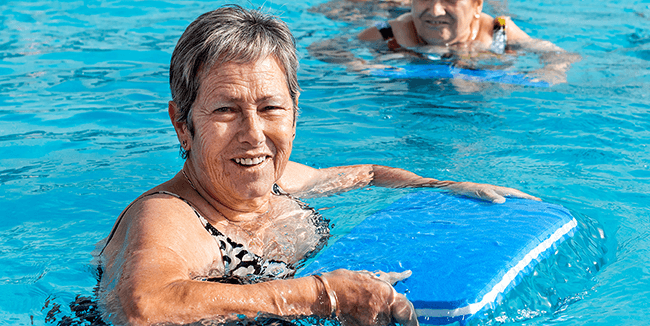In order to determine the efficacy of RMT and AE on heart failure, research into both methods was conducted. This study (Winkelmann, et al) aims to test additional effects of inspiratory muscle training (IMT) when added to AE in patients with CHF and inspiratory muscle weakness.
Key Findings
- Respiratory muscle weakness contributes to fatigue and dyspnea in people with heart failure (HF).
- Incremental respiratory muscle training (RMT) aims to increase endurance by increasing training intensity.
- 10 weeks of incremental RMT improved respiratory muscle strength, exercise capacity, peak oxygen uptake, dyspnea, quality of life and reduced the heart rate in people with HF.
Patient Impact
Incremental RMT effectively improves respiratory function, exercise capacity, oxygen uptake and heart rate in people with HF.
Study Methods
Patients with CHF underwent 12 weeks of AE plus IMT. Respiratory and cardiopulmonary function, exercise capacity (6MWT) and QOL were assessed before and after the training period. They were also compared to a control group who did AE only.
Study Results
The results of the aforementioned study were striking. PImax, VO2 peak, circulatory power, oxygen uptake efficiency slope, ventilatory efficiency, ventilatory oscillation, and oxygen uptake efficiency slope all improved significantly in the AE plus IMT group when compared to the AE only group. The QOL of patients increased accordingly.
In conclusion, using RMT in addition to general aerobic exercise results in improved respiratory function and cardiorespiratory responses. This is important as it shows that RMT makes AE more efficient. This can be clinically meaningful as better cardiopulmonary function is associated with better diagnosis in patients with CHF.

0 Comments